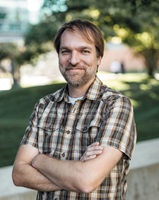ABOUT
The Biomedical Sciences Program (BSP) at the University of Colorado Anschutz Medical Campus, offers an umbrella admissions process designed to provide incoming students with the greatest amount of flexibility in choosing a course of study. As
members of our umbrella program, you will have access to over 130 faculty in eleven different PhD programs.
Learning Outcomes
The BSP trains graduate students to become proficient and successful investigators who are able to:
- Demonstrate a basic knowledge of central concepts in the biomedical sciences.
- Understand the basic principles underlying numerous different disciplines within the biomedical sciences
- Read and critically evaluate the scientific literature.
- Formulate hypotheses based on current concepts in the field and design, conduct, and interpret their own research projects.
- Develop ancillary skills, where necessary, to obtain positions outside of scientific research.
Program Options
At the end of the first year, following successful completion of the graduate course curriculum and preliminary exam, BSP students will select a thesis mentor and join one of our participating programs. Click here to explore the PhD program options.
Student Support
Students accepted in the PhD program are provided full tuition, health and dental insurance, and a stipend of $43,000 per year for living expenses. Continued support is contingent upon satisfactory academic and research performance by the student. When a student enters a thesis lab, the thesis mentor assumes complete responsibility for the student’s stipend, benefits, tuition, fees, and associated research costs.
Outstanding students are eligible for a HIRS Merit Award which provides an additional one-time award of $5,000. The award money can be used for approved research related expenses during your tenure as a graduate students at CU Anschutz Medical Campus.
After the first year, out-of-state students are expected to become Colorado residents and complete their graduate work in no more than seven years.
Students are allowed and encouraged to apply for additional support in the form of pre-doctoral grants which will be added as supplements to their stipend.
Students who demonstrate a greater financial need may apply for aid through Financial Services.
Program Timeline
The program begins in the fall semester each year. Students arrive mid-August to attend Graduate School and Program Orientations before classes begin later in the month. In the first semester, BSP students attend Core Course, Ethics in Research, and Journal Club. In the second semester, we encourage BSP students to take required courses in the program of their interest. The Preliminary Examination occurs at the end of the first year (spring semester), at which point in passing this exam enters you into the PhD program of your choice and you’ll begin your project in your thesis lab.
Including your first year in BSP, the average time working towards your PhD is 5.5 years. A majority of our students continue on to post-doc or industry positions.
Required Coursework
All students are required to enroll in a comprehensive cell and molecular biology Core Course for the fall semester. The core course consists of four modules: Foundations in Biomedical Sciences; A Systems Biology Approach: Energetics; Molecular & Cellular Analysis of Human Disease; Discovering Protein/RNA Function and Structure.
Students also participate in Ethics in Research in the fall semester. All predoctoral NRSA trainees supported by individual fellowships or institutional research training grants are required to complete this course. This course is designed to inform and sensitize students, trainees and faculty to the problems of fraud, misconduct and unethical practices in scientific research. The course consists of 8 didactic lectures with question and answer periods, as well as 8 small group discussions and a final paper. The lectures cover topics that are largely informative but often also raise points that are followed up in the discussion groups. While there is a list of potential topics each fall, individuals are welcome to talk about situations they themselves have experienced.
The second semester is used to complete electives for the first year. Electives should be selected to fulfill the requirements of the programs in which the student might be continuing their study in the following years. Many electives may cover requirements for multiple programs. Please contact the programs you are interested in for the information regarding their elective requirements.
Lab Rotations
Laboratory skills are necessary for successful completion of any of the participating PhD programs. Three (3) laboratory rotations are required of first year students, running concurrently with the graduate core curriculum. First-year students may choose to perform laboratory rotations with any of the lab faculty participating in the BSP program. After acceptance into the program, rotations begin in the fall semester. At the end of each rotation students in BSP present a short oral presentation on their work to the other students and faculty.
Journal Club
In the Fall semester, BSP students are required to participate in a weekly journal club guided and moderated by a BSP faculty member representing one of the programs under the BSP umbrella. Each week, for approximately 12 weeks, one student will present a brief summary review of the journal article chosen by the participating faculty member.
Preliminary Qualifying Exam
Every first year student takes the Preliminary Qualifying Exam at the end of the first year of graduate school. For BSP students, their exam will be administered by the specific program that the student chooses to join.
The primary goal of the Preliminary Qualifying Examination is to ensure that you have achieved a high standard of scientific scholarship and skills that are critical for successful completion of your Ph.D. thesis and beyond. In addition to assessing your foundation in genetics, molecular biology, cell biology and biochemistry, the Preliminary exam will test your ability to:
- Develop a set of original, testable hypotheses
- Prepare a compelling research plan to test these hypotheses
- Orally explain and defend these hypotheses and your research plan
- Critically analyze and interpret data
Throughout the year, the directors of BSP will provide the students guidance as to how to choose the graduate program in which they will perform their thesis work, and which courses to take to prepare for their program specific preliminary examination.

